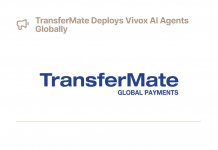Financial institutions and regulated entities across Malaysia are gearing up for the nation’s fifth mutual evaluation by the FATF, scheduled for 2025.
According to Moody’s, this crucial assessment, including on-site evaluations and plenary discussions, is part of FATF’s routine process to monitor compliance with global anti-money laundering and terrorist financing (AML/CFT) standards, adhering to the 40 FATF Recommendations.
In 2015, Malaysia underwent its last mutual evaluation, which led to a heightened focus on the effectiveness of its AML/CFT strategies. Initially, the country received a partial compliance (PC) rating on Recommendations 7, 24, and 25. Since then, Malaysia has launched significant initiatives to address these technical compliance shortfalls, notably by bolstering its legal and regulatory frameworks and implementing targeted measures to rectify noted deficiencies.
Malaysia’s financial sector has seen substantial improvements in risk assessment and management. A key development is the adoption of a robust risk-based approach, enabling a comprehensive evaluation of potential risks through detailed client and transactional data. Enhanced due diligence (EDD) protocols have been intensified, particularly for higher risk scenarios, aiding in the more effective identification and mitigation of potential threats.
These initiatives have empowered financial institutions with better insights, enabling them to initiate appropriate de-risking actions when necessary.
Since the previous assessments, Malaysia has shown improvement in its compliance ratings. By October 2018, Malaysia had upgraded its status in four of the FATF Recommendations, leaving only Recommendations 24 and 25 with a PC rating.
Despite these advancements, Malaysia remains under enhanced follow-up, reflecting the need for further improvements as indicated by the moderate level of effectiveness in several of the Asia/Pacific Group on Money Laundering’s outlined outcomes.
The drive to rectify remaining gaps, particularly Recommendations 24 and 25, is pivotal for enhancing beneficial ownership transparency. This is crucial for combating sanction evasion risks, which can greatly impact economic activities such as investment and trade.
Recent legislative adjustments and stronger enforcement measures have been crucial in ensuring accurate identification and record-keeping of corporate entity owners. The Companies Commission of Malaysia has recently updated guidelines and amended the Companies Act to bolster beneficial ownership transparency.
These regulatory enhancements have significantly refined the definition of beneficial ownership, requiring swift reporting of any changes. The retention period for beneficial ownership data has been extended to seven years post tenure.
These tools are vital for compliance teams, facilitating better integration of beneficial ownership verification into their operational procedures. By aligning with international standards, Malaysia not only fortifies its financial system but also enhances its appeal as a destination for international investment, potentially catalysing economic growth and trade.
Keep up with all the latest FinTech news here.
Copyright © 2024 FinTech Global











